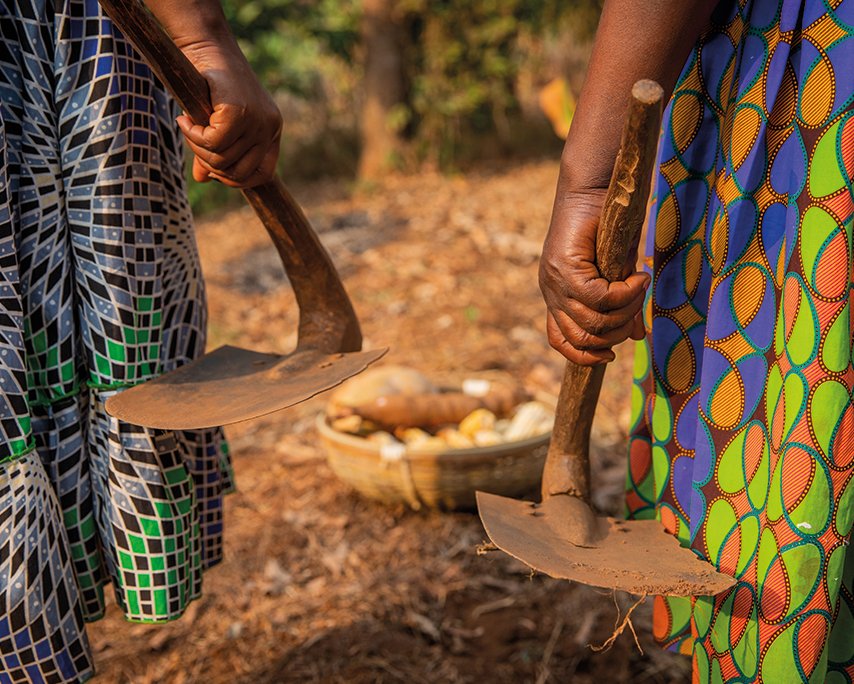World Environment Day
Our Land. Our Future
World Environment Day
As we face mounting environmental challenges, a growing movement of communities believe traditional ecosystem regenerative and reviving practices offer valuable insights and solutions. Preserving these practices for future generations is a tribute to our heritage and a practical step towards sustainable living. This year’s World Environment Day, under the theme “Our Land. Our Future”, we explore various perspectives on capturing and implementing these traditional practices.
The value of traditional practices
Culturally, traditional ecological knowledge is an integral part of cultural identity in Africa. These practices are handed down through generations, embedded in the rituals, stories, and daily lives of communities. Therefore, preserving these practices means keeping our cultural heritage and cultivating a sense of identity and continuity. However, it is important to note that traditional practices have evolved over centuries, finely tuned to local environments. Today, most conventional methods often prioritise balance and sustainability, aiming to maintain the health of ecosystems. Techniques such as agroforestry, rotational farming, and natural water management have proven their worth in preserving soil fertility, preventing erosion, and maintaining biodiversity.
One economic advantage of these newer sustainable traditional practices is their ability to enhance local economies. Communities have achieved greater self-sufficiency and resilience by promoting practices that do not rely on expensive, non-renewable inputs. Additionally, eco-tourism and the marketing of traditional products provides the communities with economic benefits.
One notable challenge of using traditional practices to conserve the environment is that modern policy frameworks undervalue or ignore many conventional practices. Without formal recognition and support, these practices become marginalised or lost. Integrating traditional knowledge into national and international environmental policies is crucial for their preservation. Further, traditional knowledge is often transmitted orally, making it vulnerable to loss. Documenting these practices in written or digital form is essential but must be done sensitively to respect and preserve the knowledge’s cultural context.
Strategies for capturing environmentally friendly traditional practices
The African Biodiversity Network (ABN) has empowered communities to cherish and leverage their natural, cultural, and spiritual heritage for over a decade. By harnessing these unique values, they have enabled people to take control of their lives, resist harmful changes and advocate for laws and actions that protect human rights and the environment. Our organisation has proudly collaborated with ABN to document and publish their groundbreaking discoveries on traditional solutions to African challenges.
Some of the notable strategies ABN uses to capture the environmentally friendly traditional practices include the use of:
- Reports, newsletters, books and blog articles to document traditional practices. Through interviews with elders and custodians of knowledge, they have recorded their stories, methods and the rationale behind such practices, creating a rich repository of knowledge anyone can access freely from their website.
- Community-led projects, where communities are empowered to lead restoration projects using traditional methods. This has ensured that knowledge and traditional know-how remain relevant and applied. Most of these community-led initiatives have gone on to serve as living laboratories, demonstrating the effectiveness of traditional practices.
- Partnerships and collaborations not only with the local communities but also governments, non-governmental organisations and various international communities to provide the resources and recognition needed to preserve these traditional conservation practices. Through these collaborations, ABN has been able to support research, provide funding, and help integrate traditional knowledge into broader conservation efforts.
ABN’s step towards capturing traditional ecosystem regenerative and reviving practices for future generations is a crucial step towards a sustainable future. By valuing and integrating these practices into modern conservation efforts, communities learn to honour their heritage and build resilience against environmental challenges. This World Environment Day is a call for everyone to commit to preserving and revitalising the wisdom of the past to secure a thriving future for our land and communities.



